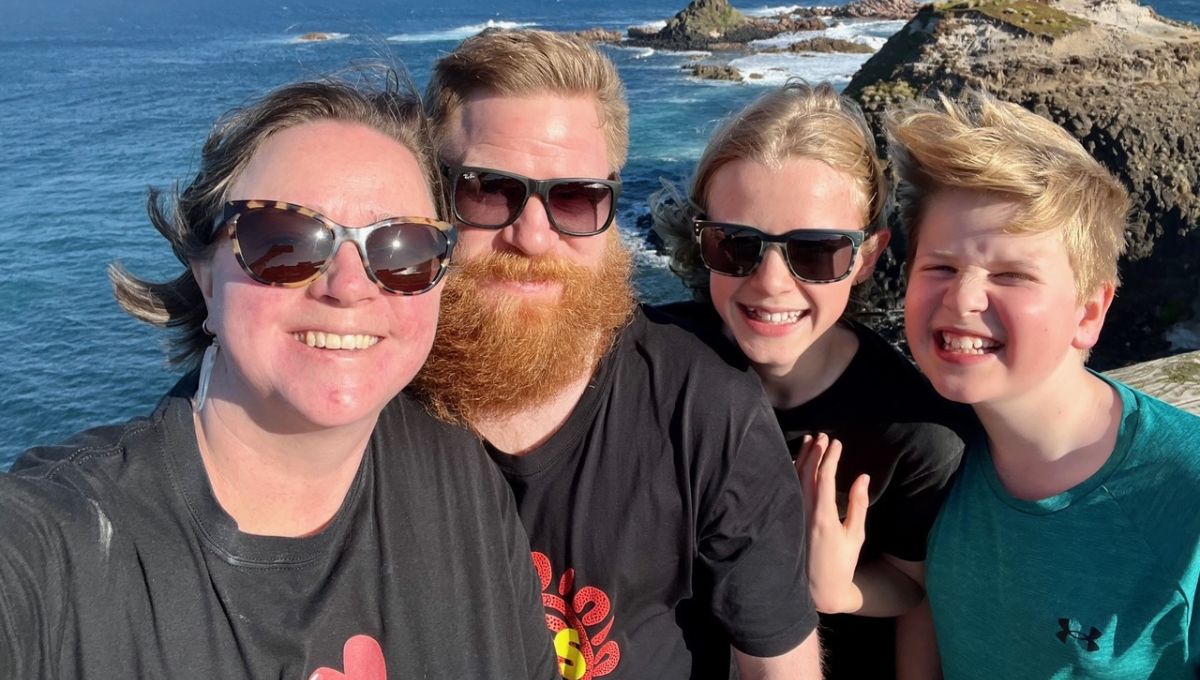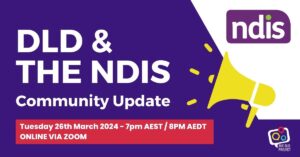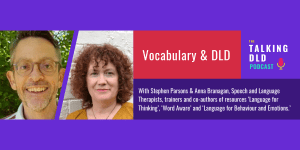1 in 14 people have Developmental Language Disorder (DLD), a hidden disability that makes talking and listening difficult. The below insights have been provided by Clare, Max’s mum in support of #DLDday. Thank you to Clare and Max for sharing their story with us.
About Max
Max is very sporty and has played team sports from the age of around 7, always around older kids who he needs to befriend. etc. He plays field hockey and indoor hockey and cricket for local teams. He is very active at school playing basketball and he has swimming lessons once a week. He also enjoys mountain biking and playing soccer – generally anything active with his father and older brother. As a result, he is interested in all sports and associated information on TV, social media, etc.
When did you notice SIGNS Max was struggling with his language?
From a very early age we noticed signs Max was struggling with his language development. He had delayed speech and took a long time to understand and follow instructions. He was unable to find the words or remember the correct words. He struggled with colours which is something other kids pick up quickly. It was mentioned he was colour blind but he wasn’t, he just did not know or was unable to name the colours. But at all points along his early development, I was told everything was normal and there were no concerns. This includes the Maternal Health Care, Childcare, Kindergarten and all family members.
What did you do when you noticed he was having challenges?
I did keep asking but it was not until School things started to become more noticeable. People described Max as “clingy” but I expect he was scared and just did not understand what was going on around him.
What have been the strategies that have most helped Max?
Prior to his DLD diagnosis when Max was 8 it was a little bit hit and miss. We tried to encourage him to read, we would repeat instructions often, but I expect we just did things for him. When it came to sport, he always responded well to being shown and then would repeat the activity himself, over and over again. So, he is very into active learning but also needs to be able to see someone else so he can observe and copy. Although verbally he may not pick up a complex sporting action, he will if he does it and gets feedback and support. Then it sticks.
What support has Max accessed from health professionals?
Psychology, Speech Therapy and Occupational Therapy. Also additional support at school via a post covid Tutor scheme and when we have pushed the school to help. Max is also indigenous so he can access Student Support Groups which all Indigenous children are provided with regardless of academic ability. Otherwise, Max would get nothing at school.
Have you applied to the NDIS? If yes, what has your experience been?
We spent thousands of dollars on assessments and supports before we even knew Max could get NDIS Funding. The journey was not easy. The first school did not want to take any responsibility for looking into his slow reading, writing and learning progress. They provided no official additional help. A teacher recommended we try phonics books, and this was the first time we realised Max could not read/barely read and had been guessing and masking into Grade 1.
So, we did get a referral from a Paediatrician who diagnosed Max with a low cognitive function within 10 mins in late 2019. We then follow up with a full Cognitive Assessment (WISC-V), obviously this took time to access a psychologist, book him in, etc. This test returned with a much more severe result than expected. This was all self-funded. From here we were recommended to follow up on Speech Therapy which then resulted in a string of tests (CELF). All privately funded.
At this stage the Speech Therapist made the diagnosis of DLD and suggested I applied for NDIS – armed with all the test results which was by now mid 2021. This application was rejected immediately based on the grounds Max did not have a lifelong disability – although the report clearly said DLD was a lifelong disability and he had severe receptive language disorder.
We then went back to the Speech Therapist and Psychologist for much more detailed reports describing the “impacts” DLD would have on Max’s life. This was very confronting and difficult. We then reapplied much more detailed and combined reports from both the Psychologist and the Speech Therapist. We included recommended support hours and types of support. I think at this stage we had a NDIS support officer who knew nothing about DLD but tried to help. Finally, it was approved but the recommended support was halved in all areas – Psychology, Speech and OT – they also rejected any support worker to help us and Max with this independence. It was judged that we as a family need to manage this ourselves.
So, we are coming to the end of the second year. The first year they rolled over the support, and we are expecting the same this year. We balance using the funding by having support sessions only within the school terms. We have a fantastic Psychologist, but she is in demand and sometimes we have to wait 3 weeks between appointments. We have had 3 Occupational Therapists as they keep moving on from their roles which is frustrating as we wait weeks for the next one. We have also decided to go weekly with Speech Therapy and just use the funding we have. She is also fantastic and is fully across DLD.
How has Max found navigating school? Do his educators know and understand what DLD is?
As said above, his initial diagnosis was not picked up at school but since then his current teacher has really helped him and embraced learning more about DLD.
What do you want people to know about DLD?
That it can be hidden, it is real and is not always linked to Autism or ADHD or other neuro diversity and it can be stand alone. A child/person can have DLD but not display any outwards signs or behaviours to indicate their struggles.
What would you say to a parent of a person with DLD? What have you learned that you’d like to share?
Read what you can but take the time and money to get a good and solid assessment of your child. It gives you the steerage to avoid inappropriate or incorrect help. Also, work closely with an experienced practitioner and be honest with them as they will have an array of tools and techniques at their disposal. Also, don’t give up!
What will you be doing on #DLDday 2023?
Wearing my T-shirt but also Max wanted a pair of Crocs so that is his treat for DLD Day!
Is there anything else you would like to add?
It would be fantastic if professionals (Maternal Health Nurses and Childcare professionals) were trained to pick up DLD. Not always focusing on managing the kids with difficult behaviours but the kids who follow the rules but perhaps cry constantly at Childcare drop off! Don’t judge the parents or dismiss a mother’s concerns but actually work with the parents. Max’s diagnosis and subsequent tests & results was probably the hardest thing I have ever had to deal with. The guilt and fear for the future was overwhelming but no support was ever provided yet the fight for NDIS, the hours of calls, appointment booking, sharing of results is a huge task. I always wonder how parents with less means manage – who fights their battles for their kids?!
Is there anything Max would like to add? We’d love his insight too.
Max is excited about DLD Day and his Crocs!
JOIN THE WHAT ABOUT DLD CAMPAIGN?!

1 in 14 Australians have a hidden disability called Developmental Language Disorder (DLD) and they feel invisible. Please choose at least one of the following ways to join the ‘What about DLD?’ national campaign in 2023.
FIND A SPEECH PATHOLOGIST NEAR YOU
If you don’t have a speech pathologist at your school, try Speech Pathology Australia’s Find a Speech Pathologist page or Google ‘speech pathology services near me’. You can self-refer to many speech pathology services, but you may also like to speak to your GP who may be able to help you access a Chronic Disease Management plan through Medicare. Write down your concerns about your child’s language, literacy and learning to share with the speech pathologist.
Access our free DLD training resources for families
Head to our DLD training for families page to access courses and information on understanding a DLD diagnosis, navigating the NDIS and What is Language + What is DLD.,




